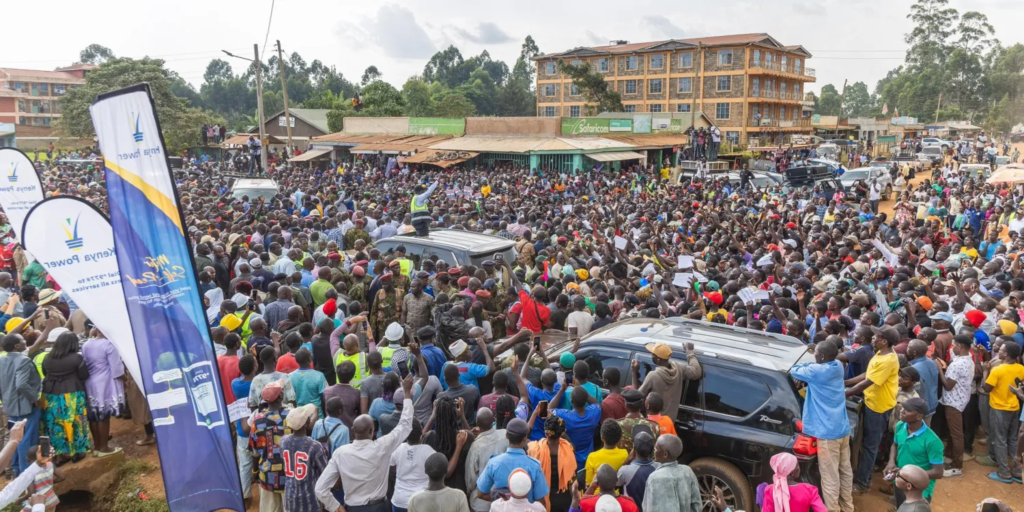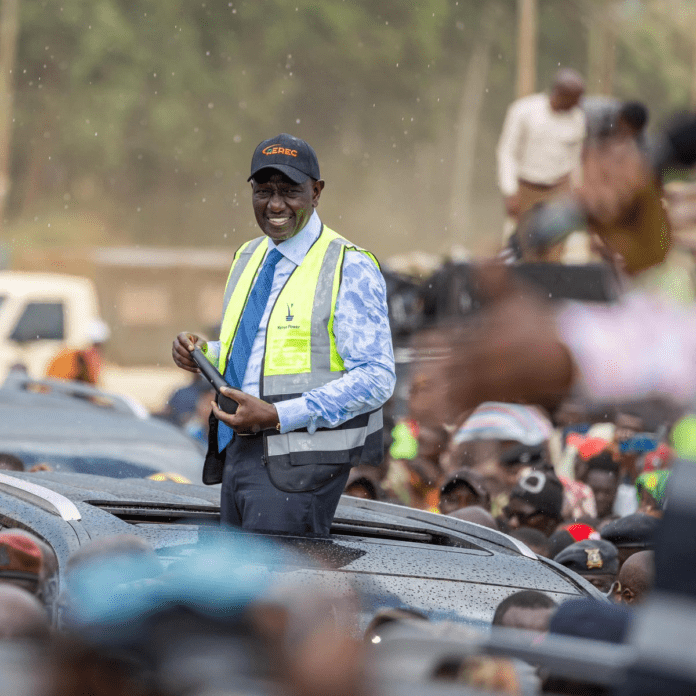President William Ruto is on a five-day tour of Western Kenya, where he has unveiled a series of development projects aimed at transforming the region’s economy.
On Monday, January 20, the President announced bonuses for sugarcane farmers in Mumias, Kakamega County, signaling his administration’s commitment to revitalizing the agriculture sector.
On Tuesday, the President convened a Cabinet meeting at the Kakamega State Lodge to review various government programs and projects. Following the meeting, Ruto outlined plans to oversee the launch of 17 key market development projects across Western Kenya.
These include markets in Malakisi, Mateka, Naitiri, Webuye, Luandanyi, Sio Port, Amagoro, Butere, Chekalini, Kakunga, Shisese, Sisikhe, Muregu, Esibuye, Luanda, Bumala, and Bungoma. The initiative is part of a five-year market development strategy targeting ESP, municipal, county strategic, and metropolitan markets.

As part of this program, the President is set to commission three strategic markets—Bungoma (Soko Kubwa) Market, Bumala Market, and Luanda Modern Market. These projects, collectively valued at Ksh969 million, aim to revolutionize local commerce and improve livelihoods. The Bungoma (Soko Kubwa) Market has an investment of Ksh373.1 million, Bumala Market Ksh230.5 million, and Luanda Modern Market Ksh365.8 million. Construction is underway, with progress on the Bungoma and Bumala markets reported at 5% and 4% respectively. Foundation works have begun, and the President is expected to lay the foundation stones during his visit.
The newly constructed markets are designed as modern commercial hubs that integrate contemporary amenities with traditional trading practices. Each facility will feature a striking four-story building, offering ample trading spaces for vendors. State-of-the-art cold storage facilities will help reduce post-harvest losses, ensuring food safety and enabling traders to manage their inventory efficiently. Additionally, the markets will include dedicated ICT hubs to facilitate e-commerce and digital financial services, bridging the digital divide for traders.
Other notable features of the markets include administrative offices, food courts, modern ablution blocks, and dedicated parking areas. Efficient waste management systems, reliable water, and electricity infrastructure, as well as first-aid rooms, will ensure the markets operate as self-contained ecosystems catering to both commercial and social needs. Childcare facilities have also been incorporated, addressing a long-standing challenge faced by parent traders, particularly women, who can now work without worrying about their children’s safety.
These developments are expected to have a significant economic impact on Western Kenya. Together, the markets will provide formal trading spaces for over 3,400 daily traders, with the capacity to accommodate up to 5,500 traders on peak days. The diverse commercial activities supported include fresh produce, fish, textiles, and household goods, creating vibrant marketplaces that cater to local and regional demands.
Moreover, the cold storage facilities will enhance food security and reduce losses, while the integration of ICT hubs will open up new markets for traders through digital commerce. The construction phase has already created numerous employment opportunities, and the completed markets will generate permanent jobs in administration, security, and facility management.
In addition to boosting commerce, the markets will catalyze growth in supporting sectors such as transport and supply chain services, contributing to the region’s broader economic development. Enhanced water and sanitation infrastructure, including modern ablution blocks and proper drainage systems, will improve hygiene conditions for traders and customers alike, addressing a critical issue in traditional markets.
These market projects are a key part of President Ruto’s Bottom-Up Economic Transformation Agenda (BETA), as outlined in the Kenya Kwanza manifesto. By focusing on strategic investments in infrastructure, the initiative aims to empower local traders, enhance livelihoods, and promote inclusive economic growth in Western Kenya.







